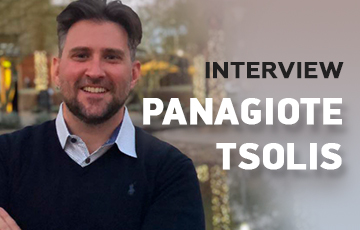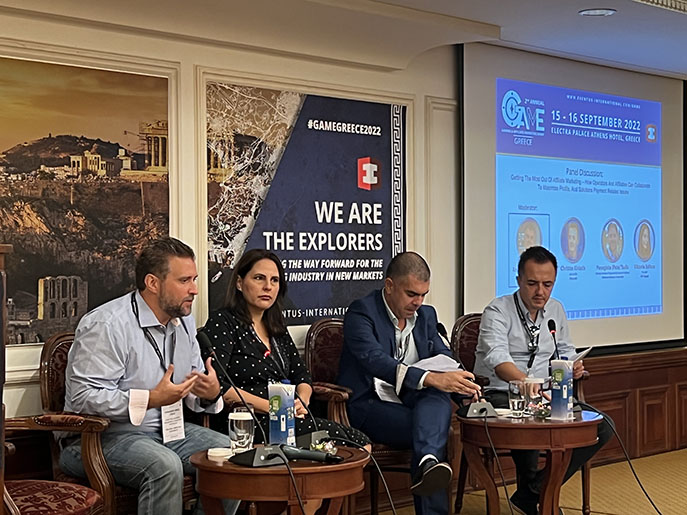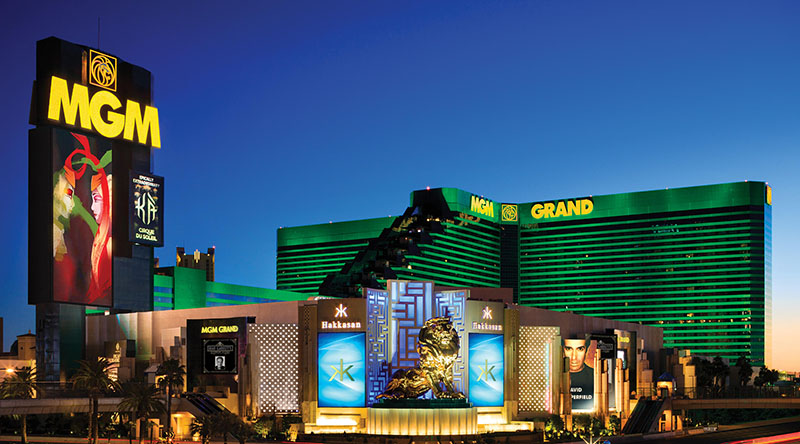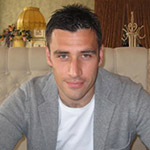«It’s a lifestyle, not just a job» — interview with Panagiote Tsolis, who has worked for over 20 years in the casino gaming space of Las Vegas to now directing a college business program.

We continue our series of interviews with famous people from the world of casinos and gambling. This time we were able to chat with Panagiote Tsolis who has worked for over 20 years in the casino gaming space of Las Vegas and is now taking what he has learned on the casino floor to the classroom.
We’ll find out from him how the online casino loyalty program differs from land-based casino one, what entertainment and service is available to players in Las Vegas, whether dealers can cheat, and how to build a career in the industry from the ground up. Our readers will learn about this and many other interesting topics in today’s interview.
– You are Director of the Business Programs and Assistant Professor of the Hellenic American University, with a degree in Marketing and an MBA from the University of Nevada, Las Vegas — Lee Business School. You are also a Ph.D. candidate in Global Leadership and Change from Pepperdine University Graduate School of Education and Phycology. You have also worked in the gambling industry for over 20 years. Tell us how you got into the industry.
I just fell into the industry since I attended high school in Las Vegas. One of my first jobs in Las Vegas was at The Mirage Hotel Casino as a guest pool attendant. As I worked through my degree at UNLV, I found myself supervising casino marketing the year I completed my degree. I was lucky The Mirage gave me the opportunity at such a young age.
– MGM Resorts International is not just about the casino, there are many different activities available to guests. Did your guests have time for the casino after all the entertainment?
Yes, of course. Gaming in Las Vegas is not just about the machines or table games. A majority of revenue comes from non-gaming activities. Weekends in Las Vegas are an experience. All are welcome to participate or buy into the action, such as an event. But those ringside seats to the UFC fight, well, those are reserved for the top players. Players will play; it’s their entertainment, along with other activities. Playing, though, gives them privileges unavailable non-players. As player development executives, we want players to enjoy their experience. On a bad run, take a break and go to the spa. Hit the table again when you feel your luck is back.

– Is it difficult to get a job at this company? Tell us what the requirements are for candidates.
I no longer work with MGM Resorts International and can’t speak to the potential applicants. Their former property, The Mirage, was a great place for me to start my career with no resources. I began working line-level, picking up towels, bringing bags to rooms, and serving food. The property’s casino marketing director, often ate at the restaurant I worked. I asked him about marketing and told him I was a university student. He gave me his email on the spot, interviewed with his team, and was given the stepping stone to where I am today.

– You worked as Consolidated Marketing Manager at MGM Resorts International. We know about marketing in online casinos — bonuses, tournaments, missions and other things. But how do they attract and retain customers in land-based casinos?
For land-based casinos, we have multiple ways of acquiring customers. Simply booking through the hotel online, 3rd party bookings like Hotels.com, MICE reservations (Meetings, Incentives, Conferences, and Exhibitions), and walk-ins from the Las Vegas Strip are examples player acquisition. Once acquired, the property has promotions to incentivize play. Marketing a destination resort in Las Vegas is unique as the room inventory is a key metric and is usually the driver of the trip when regarding customer retention. Even though walk-ins are always accepted, most promotional pieces are partnered with a room reservation. A guest’s rating and the resort’s inventory play a key role in how properties reinvest in their players. Events such as concerts, sporting events, and tournaments play a big role. A mixture of standard offers with events sprinkled all around the year is the key to success, as Las Vegas has the privilege of being a destination, so customers book far in advance.

– Tell us about the loyalty program in land-based casinos where you’ve worked. What’s a VIP feature that’s not available to the other players?
I am going back to my answer on acquisition and retention. Loyalty programs on land-based properties are just that. The casino marketer is to build a strong calendar of events and promotions with multiple layers of criteria for the amenities offered to players based on history. Player Development also assists as some personal contact is needed for higher-worth guests. Based on criteria, demand, and other variables, the better players get, the better perks.

– Tell us about any interesting marketing campaigns you’ve run at the casino.
In our first year at The Cosmopolitan of Las Vegas, we didn’t have a database to pull from. So we designed a multi-month open-to-all-slot tournament. The only requirement was to have a player’s card. As an acquisition campaign, all sign-ups were given Freeplay to get them started. Without getting too specific, all customers at all levels were entered to win $1 million. It performed well, and we acquired some good customers this way.
– You’ve worked in different roles at the casino. Can you tell us a funny story from your work?
Back in the early 2010s, when reality television was gearing up, we were offered a few times to make player development into a reality show. I don’t think our customers would have appreciated their millions in gaming being showcased on cable television.
– What’s the hardest thing about working in a casino?
In player development, the hours can be long. It was working the office time in the day, tournaments, events in the evenings, dinners, and player development trips. It’s also common to get the wake-up call for an extension to a credit line in the middle of the night. It’s a lifestyle, not just a job.
– There are many stories claiming that dealers cheat in casinos. Tell us whether or not this is possible and why.
I’m not sure now a dealer can cheat in a Nevada casino with all the cameras and regulations provided by the state of Nevada. If a dealer does “cheat” they cheat the property not the player. On the player side, the rules of the game are easily available. Human error may happen. The guest can call the supervisor, and they will assess the situation. If a guest truly feels they have been cheated, call the regulators. The Nevada Gaming Commission reviews complaints and has been known to issue fines for multiple infringements. Furthermore, the commission reviews games, tournament rules, and other aspects of the operations. Now, if someone plays somewhere that is unregulated, they should understand the risk that comes with that.
– What do you think makes players choose land-based casinos in today’s abundance of online casinos, where you can find games for all tastes and lucrative bonuses from the comfort of your own home?
Its a story of history. Online was mostly available in markets like Europe and land-based in the USA. Now there is some overlap, and one can benefit from the other. Land-Based players enjoy the social component, the exclusivity of perks, and the attention they receive as a person of importance. Online players have the comfort provided by playing wherever they have a mobile device.
– Online casinos are rapidly developing, new interesting slots and live dealer game releases, which are little inferior to the casino games. The players are offered lucrative bonuses, organized interesting tournaments. Do you think that online casinos in the future may displace the real venues? Or land-based casinos will always be relevant? If so, why?
I’ve heard someone before using the term clicks to bricks. The customer base is like a venn diagram. In the end, there are the purists, preferring either land-based or online. But I think there is far more overlap as online keeps taking over the USA or integrated resorts are launched in Europe. Most notably City of Dreams Mediterranean in Cyprus and Hard Rock International at Ellinikon in Athens, Greece. You can see the potential as MGM Resorts did when they acquired LeoVegas earlier this year. Land-based casinos allow customers to socialize, be entertained, and receive perks. Online can give a safe place to learn how to play or continue earning rewards.I think the industry will merge the two options in the coming years.

– Share why you decided to leave gambling for now.
I was a Ph.D. student at Pepperdine University when COVID-19 closed all operations. The closures allowed me to develop my own consulting practice, teach college classes, and complete my doctoral studies. I’ve never left gaming. I just changed what I offer to the industry.
– Are you still interested in gambling? If yes, what kind and where do you bet — at an online or land-based casino?
I never was a real player. If I did, it was always with friends on the casino floor. Like rolling some dice at the then Hard Rock across from UNLV after successfully finishing a term with my EMBA classmates. Or playing video poker while watching a sporting event at a pub.
– Tell us about your plans for the future. Will you continue to work at the university or maybe you plan to come back to the casino?
Anything is possible. I do love my students. It’s very satisfying when a student calls you years later to share how you have positively influenced their career. Consulting and helping an organization reach its goals gives me similar satisfaction. I’ve now worked with organizations all over the world. I’m excited to see what the future brings.


